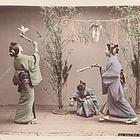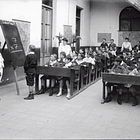The Learning Dispatch Roundup
A recap of stories, frameworks, and learning science principles
Last year, The Learning Dispatch saw 20 editions published, and I’m feeling very grateful! To those who’ve been following along: thank you! Writing each edition has been one of my favorite parts of the year.
For this special edition, I’m taking a moment to reflect. We’ll revisit the formats, features, and learning science that shaped the posts so far. I’ve also included a couple of ways you can join the conversation and help shape what’s next:
Visual frameworks compilation:
I’ve compiled the visual frameworks from the first 20 posts into one handy resource. You can download it here:4-questions survey:
I’d love to learn more about you! Please take a moment to fill out this short, 4-question survey.
If you don’t have a Substack account, you can fill it out here.
Thank you again for being part of The Learning Dispatch community. Here’s to another year of learning adventures!
📰 What were the formats?
Last year, we explored WhatsApp courses, choose-your-own-adventure learning experiences, music festivals, Hollywood actors' roundtables, Sesame Street, scavenger hunts, Tiny Desk Concerts… Each format revealed new ways to make learning more engaging, interactive, and deeply human. The common denominators? Collaboration, interactivity, personalization, and real-world application.
🎛️ What were the features?
The common thread running through all these formats is a commitment to moving beyond traditional, passive learning methods towards more engaging, interactive, and meaningful learning experiences. Here’s everything published so far, organized by (mostly overlapping) categories:
Learning in communities
Humans are social learners, and learning flourishes in collaborative environments.
Embracing non-linearity
Learning is rarely a straight path. Formats like “Choose Your Own Adventure” and "Explorable Explanations" encourage learners to forge individual paths.
The importance of story
Storytelling is a powerful tool for learning, connection, and growth.
Learning through constraints
Constraints can foster creativity and deepen learning. Limitations can push creators and learners to innovate and optimize their work.
The value of fundamentals
Mastery of basic principles and skills is crucial for tackling more complex concepts.
The power of play
Play is a gateway to exploration, experimentation, curiosity, and risk-taking.
Cultures of learning
Culture is foundational. It determines how any curriculum or learning experience comes to life.
💡 Why are these formats effective for learning?
In 2024, we explored a diverse range of learning science principles that underpin effective learning experiences. Here are some of the key elements:
Active recall and retrieval practice: Wordle, for example, challenges players to recall words and apply strategies based on feedback. The act of struggling to remember strengthens memory and deepens understanding. Similarly, the concept of Marginalia encourages learners to actively engage with texts by annotating and questioning, prompting deeper processing and retention.
Spaced repetition: This principle suggests that spacing out learning sessions over time leads to better long-term retention. The WhatsApp-based course "Radical Listening" uses spaced repetition by delivering content over several weeks, allowing learners to revisit and reinforce concepts.
Scaffolding and guided practice: Effective learning experiences often provide learners with appropriate support and guidance. Wired’s 5 Levels videos, for example, are designed to meet learners where they are now, and to increment complexity later.
Intrinsic motivation and engagement: Creating engaging and enjoyable learning experiences is key to fostering intrinsic motivation. Gamification integrates game elements to enhance learner interest and participation. The use of storytelling in formats like StoryCorps and Sesame Street leverages the natural human affinity for narratives to make learning more captivating and memorable.
Desirable difficulties and the role of struggle: Challenges and even setbacks can be beneficial for learning. Tiny Desk Concerts, with its space limitations, pushes artists to be creative and adapt. Explorable Explanations encourages learners to grapple with complex ideas and discover insights through experimentation.
💌 An invitation
What excites you, how you approach learning, what keeps you coming back? This quick, 4-question reader survey is my way of getting to know you better and tailoring The Learning Dispatch to what matters most to you. Click the button below, or if you don’t have a Substack account, simply go here.
🏷 Coming Up Next
I have a lot of ideas that I’m excited to write about this year. Here are a few of them:
Learning “behind the scenes”
Experience Design for film
Pedagogical patterns
Learning rituals
Writing in pictures
… and much more!
Like last year, I’m aiming to publish two posts each month.
🪁 Life Lately
This is a new section! A little peek into what I’ve been up to these days (projects, music, books, and more…)
Reading (and enjoying!) The Art of Changing the Brain, a recommendation by
. It was exciting to learn that a) Kolb’s learning cycle arises naturally from the actual structure of the brain, b) that our brain evolved to notice details by shifting its focus, c) and that metaphors are key to learning because we cannot understand anything unless we create internal neuronal networks that reflect some set of physical relationships. Wow.Playing around with NotebookLM (and getting excited when I realized that one of my favorite authors is a big collaborator of this project).
Realizing how much I enjoyed reading other Substacks last year. Here’s an incomplete list of some of my favorite reads.
I appreciate your time. Thank you for reading! 💙
I value your feedback (suggestions, critiques, constructive ideas…) as well as your tips or suggestions for future editions. I’d love to hear about you in the comments.
→ Or just click the heart symbol. That always makes me smile :-)




































